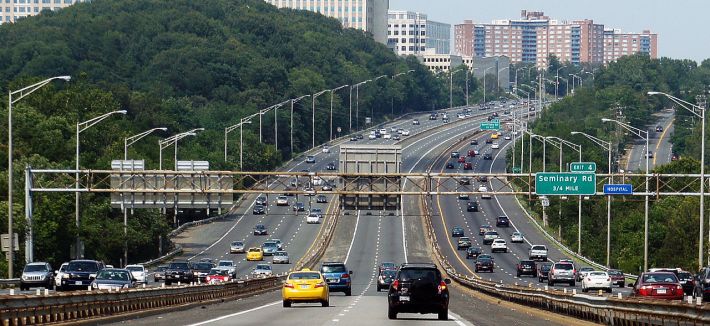
For the first time in almost four decades, the nation's tailpipes now spew out more carbon emissions than the nation's smokestacks. It's an indication of how slowly the American transportation sector is rising to the challenge of preventing catastrophic climate change.
Over the past 12 months, carbon emissions from cars and trucks have exceeded carbon emissions from electric power -- the first time that's happened since 1979, according to the U.S. Public Interest Research Group.
Emissions from the electric power sector, where coal is on the decline, are trending downward, while transportation emissions have actually been increasing in recent years, according to the U.S. Energy Information Administration. Compared to 2014, emissions from the transportation sector are up 6 percent this year. By contrast, carbon emissions from electric power declined 23 percent.
Federal transportation policy has tended to deal with air pollution largely by focusing on better fuel economy standards. But more must be done.
"It is increasingly clear that there is no path to combating climate change that doesn’t adequately address carbon pollution and other greenhouse gas emissions from transportation,” said John Olivieri of U.S. PIRG in a statement. "Over reliance on single-occupant vehicle travel and a failure to prioritize non-driving modes of transportation like transit, biking, and pedestrian alternatives is having a profound impact on the health of our planet and the health of our citizens."
U.S. DOT is only just now weighing whether to require transportation agencies to measure their impact on carbon emissions. That would be a small but welcome step toward achieving the low-carbon transportation system we need.





